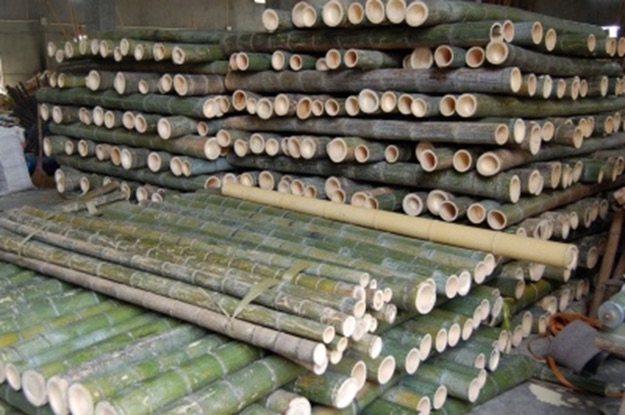
By Kofi Adu Domfeh
Bamboo could play a very important role in mitigating the impacts of climate change, says Kwabena Danso, Founder and CEO of Boomers International, a leading manufacturer of bamboo bicycles.
He says it’s about time developing countries like Ghana looked at bamboo development as a resource for environmental protection and for income and foreign exchange generation.
“We plant the bamboo as a way of re-growing the forest in the rural area; some people are being employed at the bamboo plantation as well,” he said. “It’s also having environmental benefits to the community because bamboo absorbs a lot of carbon than a lot of the other plants”.
Bamboo is the fastest growing canopy for re-greening of degraded lands. Plantation of bamboo also provides nutrition for humans and animals and helps improve air and water quality, which leads to environmental sustainability.
According to the International Network on Bamboo and Rattan (INBAR), although bamboo is botanically a woody grass and not a tree, bamboo forests have comparable features to other types of forest regarding their role in the carbon cycle.
Kwabena Danso’s Boomers International, for instance, is focused on developing the value chain for the bamboo plant – from the roots to the leaves.
The enterprise is currently growing a 20 acre bamboo plantation in the Ashanti region to support the sustainable supply of raw materials for the production of bamboo bikes and to support rural community development.
Mr. Danso, however, says a national drive in bamboo development will be beneficial.
“If Ghana wants to mitigate some of our climate change issues, the ultimate solution is bamboo development because bamboo takes such a short period to mature so you can use it and it regenerates by itself; you don’t have to replant,” he stated.
Ghana’s bamboo is twice stronger than other species found in the world, according to research by Columbia University.
The country can therefore take advantage of this by learning from the Chinese example, where bamboo development is a huge industry for job creation and environmental protection.
The bamboo bikes from Mr. Danso’s workshop are recognized globally to be environmentally friendly because the bikes require less electricity and need no hazardous chemicals, compared to the production of traditional steel bicycles.
An upscale of such projects will position Ghana to generate a billion dollar revenue annually from the export of value added bamboo and rattan products.










